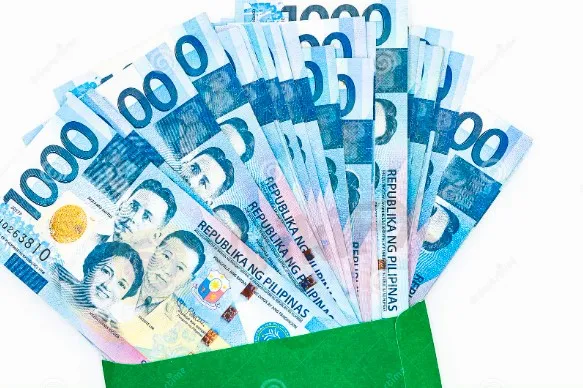简体中文
繁體中文
English
Pусский
日本語
ภาษาไทย
Tiếng Việt
Bahasa Indonesia
Español
हिन्दी
Filippiiniläinen
Français
Deutsch
Português
Türkçe
한국어
العربية
The Philippine Central Bank's modest rate hike raises bearish bets on the peso.
Abstract:Bearish bets on the Philippine peso increased as the central bank took a more cautious approach to tamping down inflation than its peers, while short positions on China's yuan eased following more stimulus and easing. COVID-19 restraints
Click Here: After you read it, Daily Routine with WikiFX
Short bets on the peso were at their biggest in at least four years amid concerns that the central bank's 25-basis-point boost this month won't curb inflationary pressures.
The peso has lost roughly 7% this year and is reaching a 16-1/2-year low.

The next governor of Bangko Sentral ng Pilipinas said the bank may contemplate greater rate hikes to strengthen the peso, but it won't match U.S. Federal Reserve policy tightening.
Bank of America analysts estimate a steady rate of tightening as the economy recovers and reopens.
Meanwhile, yuan bears receded on anticipation that removing COVID-19 limitations will boost the economy. The People's Bank of China hinted at accommodating policy, although its influence on the unit was modest.
The central bank restated its goal of making the yuan exchange rate more flexible and stable.
Short rupiah bets soared. Last week, Bank Indonesia kept rates at record lows and maintained a dovish approach, which analysts believe would weaken the currency.
The Indian rupee hit a record low on Wednesday amid fears about inflation, oil costs, and GDP.
Four-year high in rupee short positions.
Dealers favored Singapore's dollar. Singapore's primary consumer price index increased at its highest pace in almost a decade in May and is likely to peak around 4% in the third quarter.
Bearish bets on the South Korean won and Malaysian ringgit fell while Thai baht bets rose.
The Asian currency positioning survey asks analysts and investment managers about the Chinese yuan, South Korean won, Singapore dollar, Indonesian rupiah, Taiwan dollar, Indian rupee, Philippine peso, Malaysian ringgit, and Thai baht.
The poll uses net long/short positions from -3 to +3. +3 means the market is long U.S. dollars.
Non-deliverable forwards are included (NDFs).
Survey results (U.S. dollar vs. each currency):
Disclaimer:
The views in this article only represent the author's personal views, and do not constitute investment advice on this platform. This platform does not guarantee the accuracy, completeness and timeliness of the information in the article, and will not be liable for any loss caused by the use of or reliance on the information in the article.
Read more

Elderly Ipoh Man Loses Nearly RM1 Million in Online Investment Scam
An elderly man in Ipoh, Malaysia, has fallen victim to an online investment scam, losing RM974,000 in the process. The 67-year-old’s ordeal came to light after he lodged a report with the Ipoh district police on January 11, 2025.

Housewives Scammed of Over RM1 Million in Gold Investment Fraud
A fraudulent gold investment scheme has caused significant financial losses for 44 individuals, predominantly housewives, in Kelantan, Malaysia. The victims, collectively, have lost over RM1 million to the scheme, according to the Malaysia International Humanitarian Organisation (MHO).

Data to Watch This Week
Last week, U.S. employment data significantly exceeded expectations, further solidifying market expectations that the Federal Reserve will not be making aggressive interest rate cuts. This week, the focus shifts to important economic data and the start of earnings season.

Confirmed! US December non-farm payroll exceeded expectations
Last Friday, the U.S. Bureau of Labor Statistics released strong employment data, further diminishing market expectations for interest rate cuts by the Federal Reserve this year. Currently, the market widely expects the Fed to begin cutting rates again in October.
WikiFX Broker
Latest News
How to Automate Forex and Crypto Trading for Better Profits
Wolf Capital Exposed: The $9.4M Crypto Ponzi Scheme that Lured Thousands with False Promises
Confirmed! US December non-farm payroll exceeded expectations
Is Infinox a Safe Broker?
How Did the Dollar Become the "Dominant Currency"?
400 Foreign Nationals Arrested in Crypto Scam Raid in Manila
Singapore Blocks Polymarket Access, Following U.S. and France
OneZero Collaborates with Ladies Professional Golf Association (LPGA)
Housewives Scammed of Over RM1 Million in Gold Investment Fraud
Massive Hawala Scam: Rs 10,000 Crore Routed Abroad
Currency Calculator






